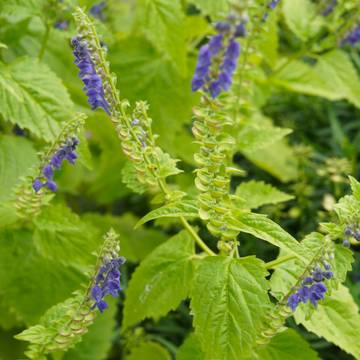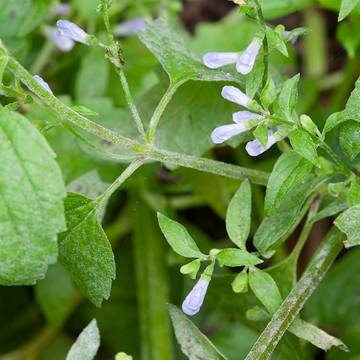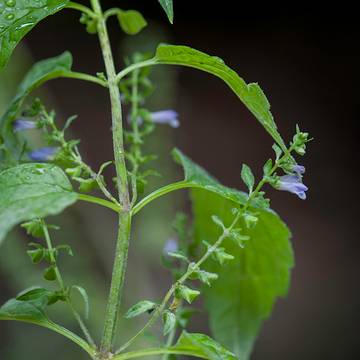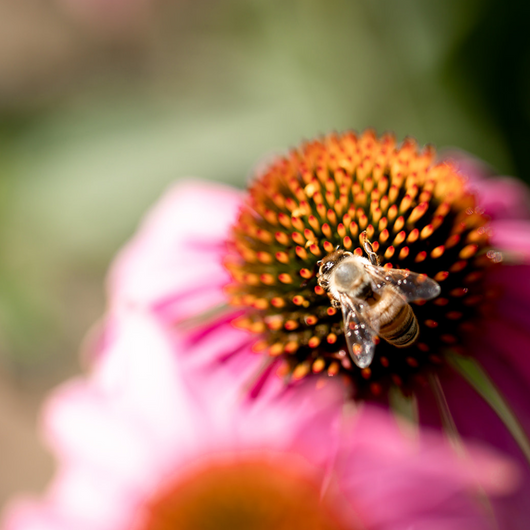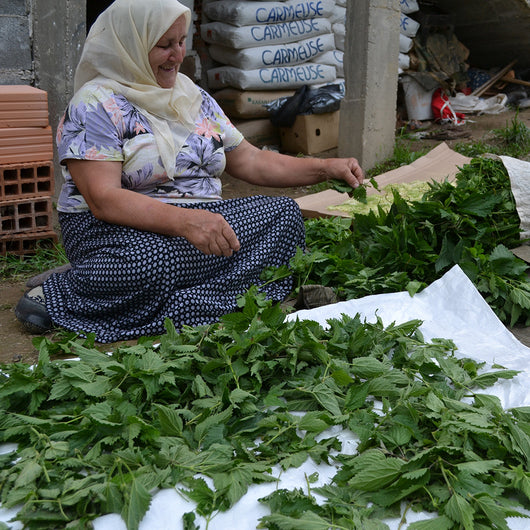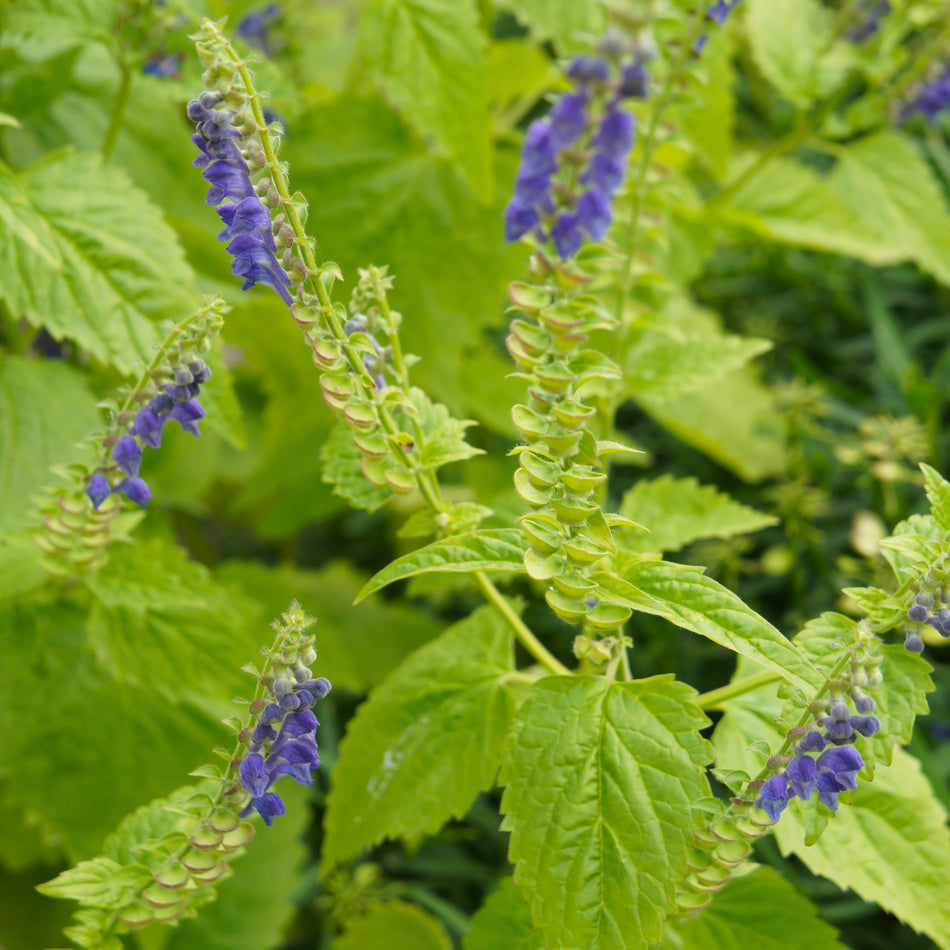
Skullcap
Scutellaria laterifloraIn an era of increased tension and stress, skullcap’s nerve-calming powers couldn’t be timelier.*
Let skullcap help melt away tension in the body and mind.*
What are the Benefits of Skullcap?
When taken regularly, skullcap can help to relax the body and the mind, restoring a sense of balance. In herbalism, skullcap is known as a nervine, an herb that calms nervous tension and relieves occasional stress. It’s also a trophorestorative, an herb that over time supports and restores the function of a system of the body—in this case, the nervous system.*
Our herbalists suggest sipping on skullcap tea before bed, or in anticipation of your menstrual cycle; it’s an incredible plant ally to help the body soften and release. Consider it a go-to when muscles are stiff and you’re holding onto the day a little too tightly.*
Folklore & Historical Use of Skullcap
Scutellaria lateriflora appears in the first American Materia Medica, published in 1785. While skullcap grew wild throughout Europe prior to the colonization of the Americas, the North American species was the first to make a significant mark on herbal medicine. European settlers and folk herbalists learned how to use skullcap from Cherokees and Native American tribes, who had traditionally consumed it as a tea to soothe the nerves, to promote women’s health and was sometimes used in ceremony. Herbal physicians then brought it back to Great Britain in the 19th century, introducing more people to its relaxing benefits.
The leaves, stems, and flowers are now widely used as herbal medicine domestically and abroad.* Today, herbalists use it for many reasons, but primarily to relieve tension, nervousness, and irritability associated with occasional stress.*
Botanical Description & Habitat
Skullcap hails from the mint family, Lamiaceae, which is easy to identify by the characteristic square stems and the jagged edges of its leaves. This perennial thrives in moist, shady riparian habitats, from forests and thickets to meadows and marshes and is a native plant of North America. Scutellaria lateriflora, the native species we use, grows up to three feet tall and is adorned with dainty blue flowers formed by two tongue-like petals.
Together, the petals were said to resemble the helmets of medieval European soldiers, hence its common name: skullcap. Farmers and collectors harvest the plants while they are flowering—the peak of their herbal power—then cut and dry the leaves and stems to use as herbal medicine.
When To Use Skullcap
Whenever you’d like to release tension in the mind and body.
Before bed to help you melt into your pillow.
Drink in the early evening to let go of the day’s stresses.
The Business of Sustainable Plants
Our business is rooted in plants, and for us, it’s a business imperative that we care for the ecosystems where these plants live and thrive. We believe that everything is interconnected, which means supporting ecosystems and the farmers and collectors who harvest and gather our herbs. Finding opportunities to reduce or eliminate emissions at the source, we support organic and regenerative farming practices as well as voluntary certifications like Organic and FairWild. These ensure the absence of pesticides, herbicides, as well as the ongoing sustainability of wild collection, and the health and livelihoods of the collectors who forage. Josef Brinckmann, Traditional Medicinals’ Research Fellow, Medicinal Plants and Botanical Supply, asserts, “Everyone has a role to play in preserving biological diversity. One way of doing that is by equitably supporting the local people to serve as stewards of the land.”
It Starts with Organic
We choose to source organic because we believe in the positive impacts it has on environmental sustainability, biodiversity, and overall ecosystem health. Organic helps us increase transparency while prioritizing consumer well-being and farmer success, which is key to producing the high-quality herbs we source. In 2021, we procured 2.73 million pounds of certified organic herbs, over 99.7% of our total botanical herbs purchased. Volumes were down slightly from FY20 due to timing of inventories received.
The impact from organic farming creates a vital ecosystem through improved soil health, water quality, pollinator habitats, and biodiversity. Organic farms also have increased carbon sequestration potential through long-term carbon storage in the soil, helping to mitigate climate change.
One of the benefits of organic that we most value is farmer health. We care deeply about the people who produce our herbs, ensuring that they are not exposed to synthetic chemicals found in conventional agriculture.
Fair Trade
We believe that everyone deserves a fair wage for hard work. That’s one of the reasons why we’re committed to fair trade. Traditional Medicinals® is a registered Fair Trade “brand holder”, “licensee” and “manufacturer,” and our products are certified by Fair Trade USA, an independent third-party certifier. We were an early adopter of Fair Trade, having launched our first fair trade tea product in 1998, just one year after Fairtrade International (FLO) was established. We continue to work closely with our network of producers to help them to implement fair trade standards and get certified.
Additional Information
Legal Disclaimer:
The information and other content in this article are designed to provide a general overview of the botany, cultural history, and traditional uses of this herb. It is not intended and should not be construed as health advice. Every person is unique and you should consult with your health care provider before using any herbal product or supplement.

